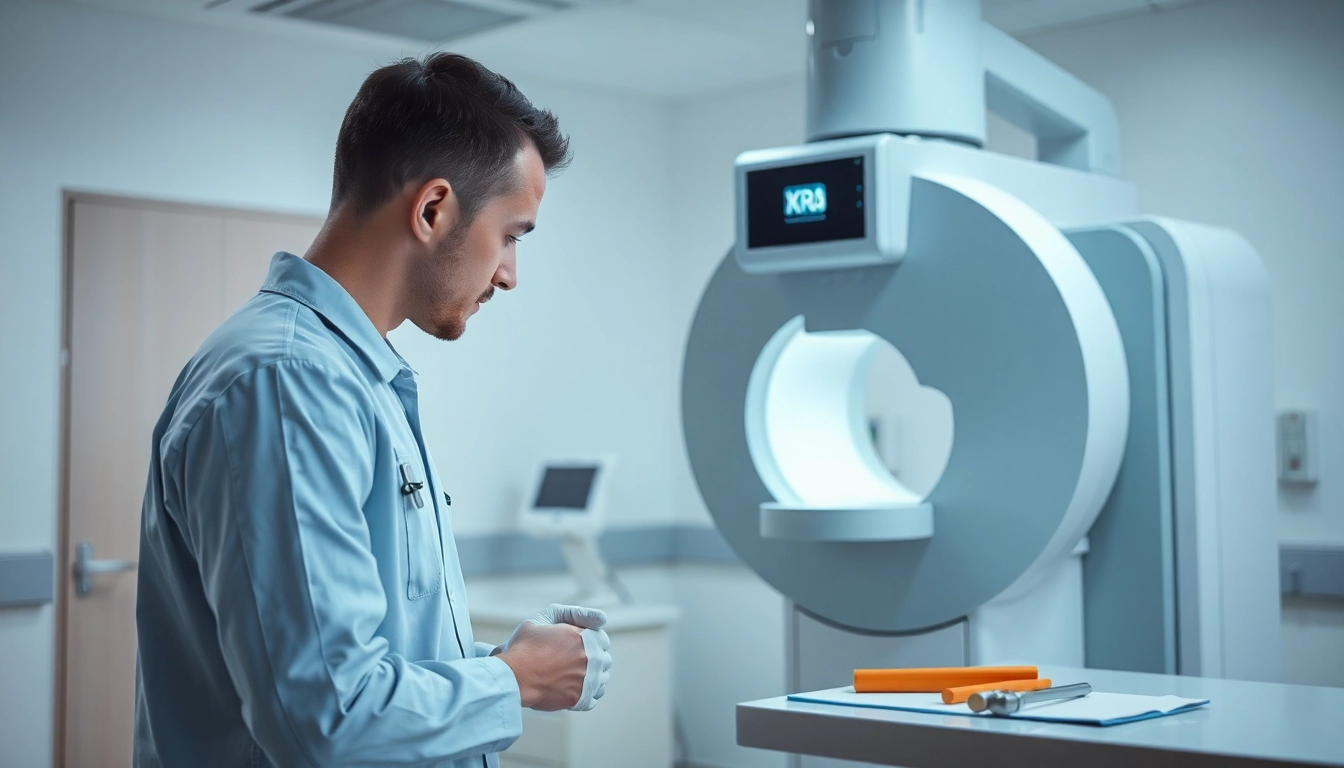What Are Psychiatric Disorders?
Definition and Overview of Psychiatric Disorders
Psychiatric disorders, often referred to as mental disorders, are a complex series of conditions that affect mood, thinking, and behavior. They can arise from a variety of genetic, biological, and environmental factors, and they significantly impact an individual’s everyday functioning and overall well-being. According to the World Health Organization (WHO), mental disorders encompass a broad spectrum of conditions more than merely sadness or anxiety; they include serious illnesses such as schizophrenia and bipolar disorder, as well as other less severe conditions.
From a clinical perspective, psychiatric disorders are diagnosed by mental health professionals and are defined by the disturbance they cause in various aspects of daily life. For those seeking a deeper understanding or support regarding psychiatric disorders, knowledge of symptoms and treatment options is vital.
Common Symptoms of Psychiatric Disorders
Symptoms of psychiatric disorders can vary widely depending on the specific condition and the individual suffering from it. While some disorders may be manifested through significant mood disturbances, others may present as severe anxiety or a detachment from reality. Common symptoms include:
- Changes in Mood: This includes feeling sad, anxious, or irritable more often than not.
- Altered Thinking: Individuals may find it difficult to concentrate, engage in decision-making, or perceive reality accurately.
- Behavioral Changes: This may manifest in withdrawal from social activities, changes in sleep patterns, or noticeable decline in functioning at work or in daily activities.
- Physical Symptoms: Many psychiatric disorders can also present with physical symptoms like fatigue, insomnia, or changes in appetite.
Distinction Between Psychiatric Disorders and Other Mental Health Issues
It is essential to differentiate psychiatric disorders from other mental health issues, which may not be classified as disorders. While psychiatric disorders are typically diagnosed following established criteria in mental health classification systems like the DSM-5 (Diagnostic and Statistical Manual of Mental Disorders), other issues could stem from transient life stressors, trauma, or situational circumstances. Psychiatric disorders often require clinical intervention for management and treatment, while other mental health challenges may improve with self-care strategies or counseling.
Types of Psychiatric Disorders
Anxiety Disorders: Understanding Their Impact
Anxiety disorders are among the most common types of psychiatric disorders. They can be categorized into generalized anxiety disorder, panic disorder, social anxiety disorder, and various specific phobias. Each subtype presents unique symptoms but is characterized by excessive fear, anxiety, and apprehension. For instance, generalized anxiety disorder involves persistent worry about various aspects of life, while panic disorder may involve sudden panic attacks characterized by intense fear and physical symptoms like heart palpitations.
Treatment for anxiety disorders typically involves a combination of psychotherapy and medication. Cognitive-behavioral therapy (CBT) is particularly effective, as it empowers individuals to challenge and change their anxious thought patterns. In more severe cases, medications like selective serotonin reuptake inhibitors (SSRIs) may be prescribed to help manage symptoms.
Major Mood Disorders: Signs and Treatment Options
Major mood disorders primarily include depression and bipolar disorder. Depression often features prolonged periods of sadness and a loss of interest in once-pleasurable activities, leading to significant impairment in daily life. Bipolar disorder presents with alternating episodes of depression and mania, which can significantly influence behavior and decision-making.
Treatments for mood disorders can be multifaceted. Psychotherapy, particularly interpersonal therapy (IPT) and CBT, has shown effectiveness. Medication management, including mood stabilizers and antidepressants, plays a crucial role in alleviating symptoms and reducing the risk of relapses.
Personality Disorders: Characteristics and Management
Personality disorders are characterized by deeply ingrained patterns of behavior and inner experiences that deviate significantly from cultural expectations. They often affect interpersonal relationships and self-image. Common types include borderline personality disorder, antisocial personality disorder, and narcissistic personality disorder.
Individuals with personality disorders often find it challenging to maintain healthy relationships and work effectively in social environments. Treatment generally involves psychotherapy approaches that focus on altering dysfunctional patterns of thinking and behavior, such as dialectical behavior therapy (DBT) for borderline personality disorder.
Causes of Psychiatric Disorders
Genetic Factors Influencing Psychiatric Disorders
Genetics play a substantial role in the development of many psychiatric disorders. Twin and family studies suggest a hereditary component to conditions like schizophrenia, bipolar disorder, and major depression. Specific gene variations may increase susceptibility to these disorders; however, the interplay of genetic predisposition with environmental factors is also critical in determining outcomes. Understanding the genetic influences can lead to better prevention strategies and treatment options.
Environmental Contributors to Mental Illness
Environmental factors can profoundly influence the onset and course of psychiatric disorders. Stressful life events, such as trauma, loss, or significant life changes, can trigger mental illness in individuals predisposed to these conditions. Factors like socioeconomic status, available support systems, and exposure to violence or substance abuse in childhood are crucial contributors to mental health.
The Role of Neurotransmitters in Psychiatric Disorders
Neurotransmitters are chemical messengers in the brain that affect mood and behavior. Dysregulation of neurotransmitters such as serotonin, dopamine, and norepinephrine is commonly implicated in various psychiatric disorders. For instance, lower levels of serotonin are linked with depression, while abnormalities in dopamine levels have been associated with schizophrenia. Understanding these biochemical components can enhance treatment approaches and the development of medications that target specific neurotransmitter activity.
Diagnosing Psychiatric Disorders
Assessment Techniques Used by Mental Health Professionals
Diagnosis of psychiatric disorders typically involves comprehensive assessments that may include structured interviews, standardized questionnaires, and behavior observations. Mental health professionals gather information about symptom duration, severity, and situational triggers to arrive at a suitable diagnosis. This thorough approach ensures that overlapping symptoms between different disorders do not lead to misdiagnosis.
Importance of Accurate Diagnosis for Effective Treatment
Accurate diagnosis is paramount for effective treatment. Misdiagnosis can lead to inappropriate treatment strategies, worsening symptoms, and prolonged suffering. A clear and thorough understanding of the individual’s specific condition enables clinicians to tailor interventions to improve outcomes significantly. Longitudinal studies indicate that early and appropriate diagnoses are linked to better therapeutic partnerships and enhanced recovery rates.
The Impact of Misdiagnosis on Patient Care
Misdiagnosis can have detrimental effects on patient care, hindering recovery and leading to increased healthcare costs and emotional distress. Patients may experience confusion about their actual condition and face unnecessary stigma. Clinicians emphasize ongoing assessments and open communication to ensure the accuracy of diagnosis and suitability of therapeutic interventions.
Treatment Options for Psychiatric Disorders
Psychotherapy: Different Approaches and Techniques
Psychotherapy is a cornerstone of treatment for psychiatric disorders. Various approaches are used, each tailored to specific conditions and client needs. Cognitive-behavioral therapy (CBT) is widely recognized for its effectiveness in treating anxiety and mood disorders by focusing on the interconnections between thoughts, feelings, and behaviors. Other modalities, such as psychodynamic therapy, focus on underlying emotional conflicts, while family therapy emphasizes restoring relationships.
Medication Management for Psychiatric Disorders
Medication management plays a critical role in treating psychiatric disorders, particularly in severe cases. Antidepressants, antipsychotics, and anxiolytics are among various classes of medication prescribed depending on the disorder’s nature. While medication can significantly reduce symptoms, it often works best in conjunction with psychotherapy and lifestyle modifications for long-term effectiveness.
Support Systems: The Role of Family and Community
Support systems are essential components of treatment strategies for psychiatric disorders. Family involvement in treatment can enhance recovery rates by fostering understanding and facilitating communication. Community resources, such as support groups, offer individuals a platform to share experiences and cultivate resilience. Mental health professionals often suggest incorporating these support systems to create a holistic treatment approach that attends to the psychological, emotional, and social facets of recovery.



